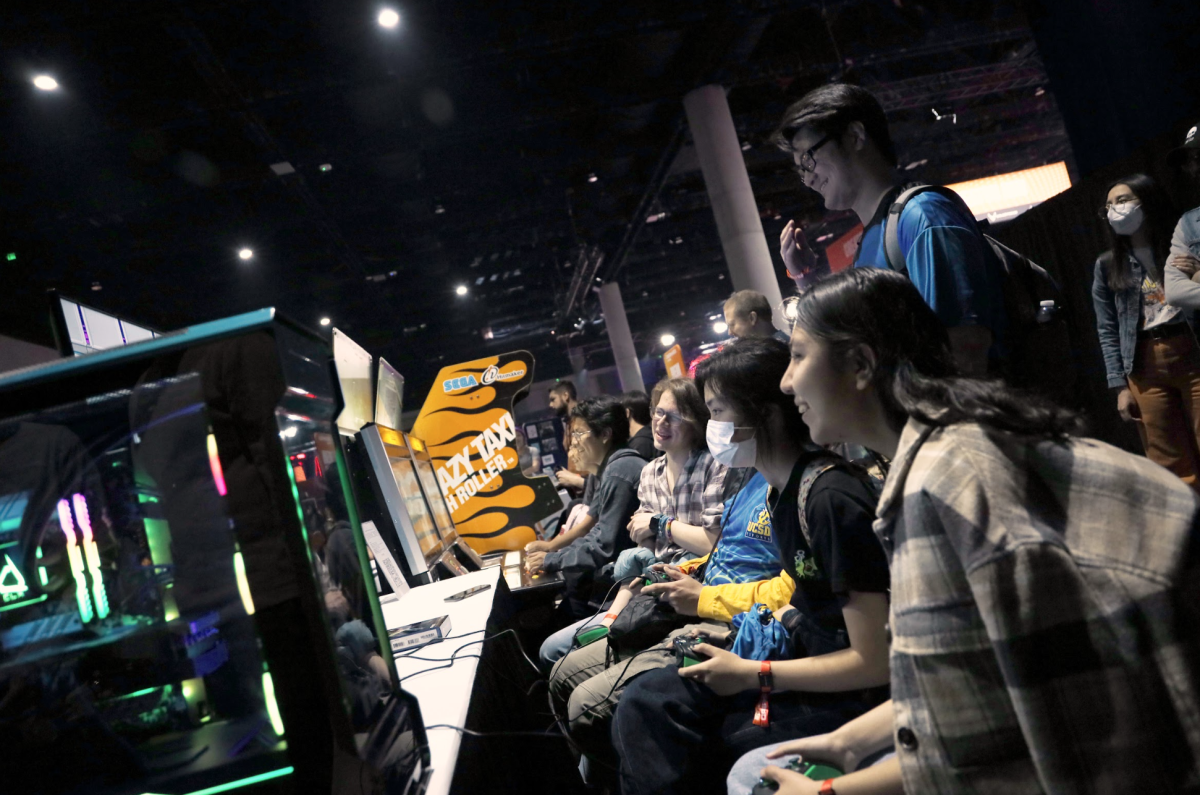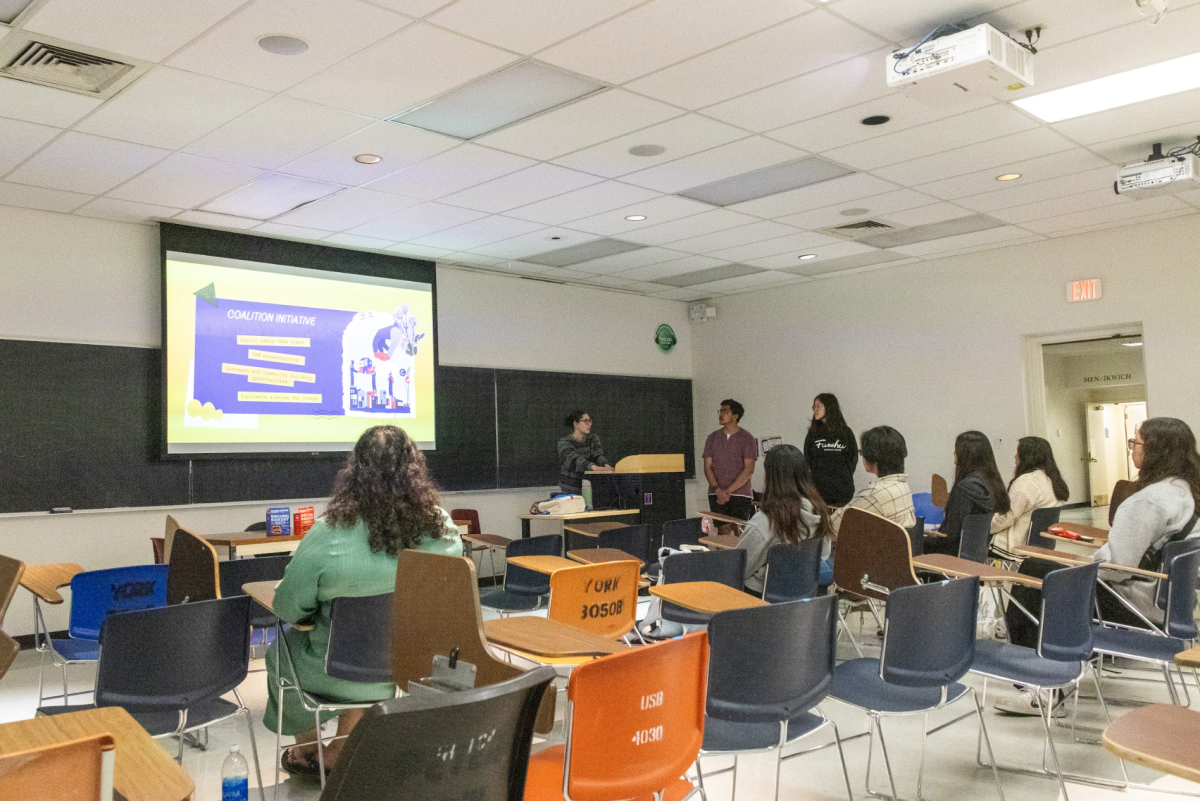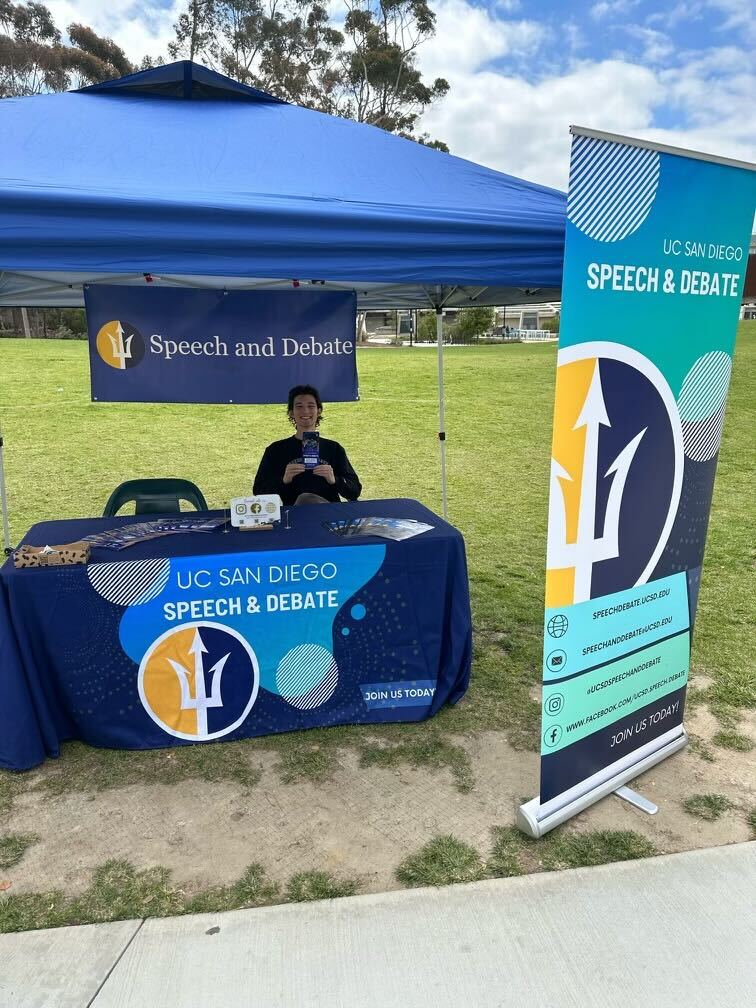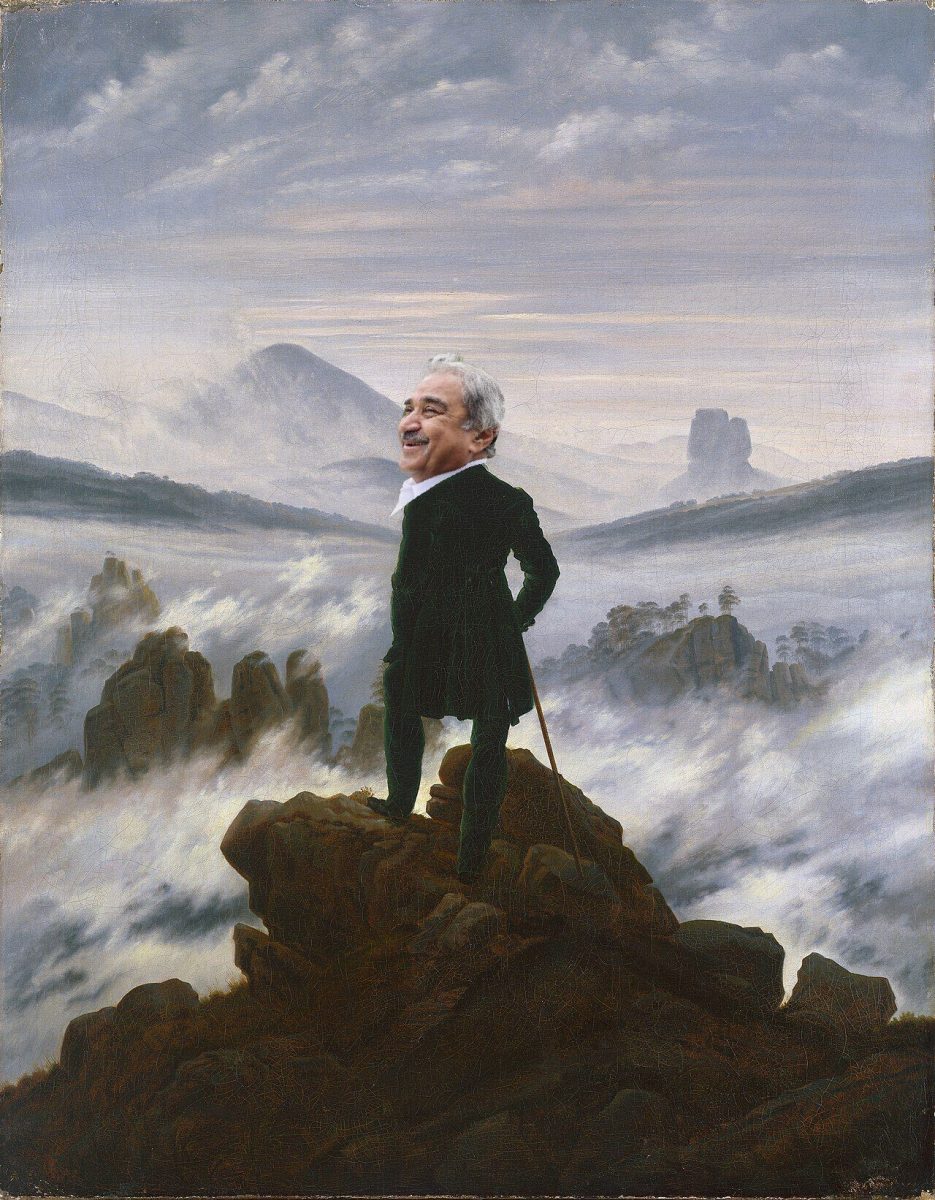Rebecca Anshell is a Marshall sophomore.
She is an active member of UCSD’s chapter of the International Socialist Organization and of the UCSD Peace Coalition.
She is eloquent and graceful. The T-shirts she wears bear political messages, such as one listing reasons for abolishing the death penalty. Her blue eyes are intense when she speaks.
She is uncompromising when it comes to her commitment against U.S. military action in Afghanistan, and in the importance of making the voice of peace advocates heard. These efforts, she believes, have been successful.
“”People are really ready to get active,”” she said, citing rising numbers at ISO meetings and the large number of students who came to the “”United for Peace, Not for War”” rally Oct. 4.
She was also pleased with the lack of response from the war hawks.
“”There has been right-wing retaliation to the anti-war movement,”” she said. “”But so far it has been ridiculously small.””
Anshell characterized those responsible for such counterprotests as “”frat boys.””
She and the other students speaking and acting for peace feel that their movement has power and is gaining momentum.
Warren sophomore Renee Elliot senses the change in the air on campus.
“”I think [activism] has been a really positive factor in my UCSD experience,”” Elliot reflected. “”It’s kind of changing my opinion of UCSD, [about] them being kind of apathetic.””
She said she was “”pretty cynical”” before, but her outlook is improving.
“”People are coming out of the woodwork,”” she said. “”I’m optimistic.””
The ISO brought its message to Balboa Park on Oct. 13 for a citywide peace demonstration organized by the San Diego Coalition for Peace and Justice. And more than just attending, one of their members, UCSD teaching credential student John Patel MCed the event.
Patel is a graduate of UC Berkeley, and so his political intensity is unsurprising. He has been a vocal opponent of sanctions on Iraq and the bombing of Serbia. His experience from those efforts is apparent in the savvy he displays when speaking about his politics.
He opened the rally by reading the SDCPJ’s point of unity.
“”We condemn the attack on Sept. 11 and mourn the victims,”” he read, with an interpretor following in Spanish. “”We call for an end to terrorism not through war but through international cooperation, justice and law. We oppose anti-Islamic, anti-Arab, anti-immigrant and all racial, ethnic and religious bigotry and violence. Fear of terrorism has led to attacks on our civil liberties; we call for their vigorous defense, for citizens and non citizens alike.””
The people at the rally, who spanned all ages and carried signs with slogans such as “”Wage Peace,”” “”Ignorance Is the Most Violent Element in Society,”” “”Y Trust W?”” and “”Israel Is Founded on Palestinians’ Death and Disorder,”” applauded and cheered.
“”Wow,”” one attendee observed. “”Nice turnout.””
Roosevelt sophomore Renee Maas agreed that the number of people there was impressive, but she says she is is looking for more response from college students.
“”There’s not very much discussion,”” she said about the war while stretching out on the grass. “”That’s really disappointed me.””
“”TAs and professors haven’t talked about it much,”” she noted. “”I understand there’s a set syllabus, but it’s not every day that our country’s involved in a war. It’s kind of disappointing — it’s really disappointing.””
Muir junior Andrew DeCaminada explained why he felt student involvement and awareness are important.
“”I think if there is a lot of [involvement], it could make a big difference,”” he said, “”but if it’s just little groups all over the place, we won’t make much difference.””
Maas pointed out, “”Being at a university, there are a lot of students who will end up in a position of power … what happens today is going to affect everything in the future.””
Maas, like the members of the ISO, is firmly opposed to the war in Afghanistan. DeCaminada, however, attended the rally to learn more and hoped other students would adopt a similarly open-minded attitude.
“”Whether they agree with the war or not, it’s just a matter of forming an opinion and taking a stance”” he said.
When the speakers finished, the rally became a march, and attendees formed a long block, moving down the Prado into the park. Some chanted “”One, two, three, four — break the silence, stop the violence,”” or, “”Not my president, not my war — we’re fired up and won’t take it anymore.”” Some of the loudest voices were those of the students.
Vince Vasquez is a Revelle senior.
He is president of the Conservative Union, an active member of the College Republicans and a contributor to the California Review.
He describes himself as “”tall, dark and handsome.”” He wears headrags and wire-rimmed glasses. His soft voice and relaxed demeanor belie the obvious passion with which he speaks and acts.
One of the things Vasquez is passionate about is the United States. He loves his country. He is quick to point this out.
“”The idea that there are limits to patriotism, limits to how much you can love your country — to freedom-loving Americans, it’s absurd,”” he said.
There are people, he believes, who do not love this country as they should, as he does. For him, those people are the ones involved with the peace movement. He said their “”anti-war rallies”” have actually been “”anti-American.””
“”A minority of people … honestly hate their country,”” he said. Those who counter “”what we have decided upon”” are anti-American, Vasquez said.
“”If we see ourselves as Americans and America is attacked, we’re going to support President Bush and the military 110 percent”” he said.
“”We support them. We’re not going to question them.””
Vasquez speaks often of the need for unity, which he feels is being disrupted by the anti-war activists.
“”We need unity to have peace,”” he said.
That desire to promote unity was part of what motivated Vasquez and College Republicans president Lucas Simmons to organize the Oct. 23 “”Pro-America Rally.””
Vasquez also said he felt it was important to make sure students “”hear our side”” — that is, the side of the organizations with which he is involved.
“”It’s very disheartening to see that there was maybe one voice coming from UCSD,”” he said, meaning the voice of the anti-war movement and the media coverage of its rallies.
Indeed, at the rally, Vasquez explained to the crowd, “”Our hope today is that the UCSD community will grasp a greater acknowledgment of our perspective.””
Warren senior Brian Brook was a featured speaker at the rally. He is a co-founder and co-chair of the United Campus Coalition. This organization tries to foster understanding among students of differering ethnic, religious and ideological backgrounds.
He is passionate about the need for student involvement and student activism. We must realize, he said, that “”apathy can no longer carry us forward.””
“”We see people around here not caring about what’s going on,”” Brook told the Price Center crowd. “”How many people have to die before we do something about people dying and suffering in the world?””
He advocated an aggressive role for the Unites States in encouraging and supporting democracy throughout the world, and stressed that Americans must involve themselves personally.
“”As lovers of freedom, we must fight for freedom not only for ourselves, but also each other,”” he said. “”We have to believe that democracy is the only way to peace.””
Brook and many of the other speakers at the rally may have viewed war as a means toward peace, but that viewpoint was not shared by all in attendance.
Early in the rally, banners were hung next to the American flag, on the Price Center marquee. From the balcony above, Anshell and Patel lowered the red paper, revealing the slogans “”War Makes It Worse”” and “”Give Peace a Voice.”” Down on the ground, other ISO members held up signs.
Reactions to the protest were mixed.
Simmons was gracious. “”That’s what makes our country: they have a right to have that opinion and express it, whereas in other countries, they wouldn’t have that right,”” he said. “”That’s what democracy is all about.””
Roosevelt junior George Davids criticized the dissenters.
“”It’s good that we have a pro-American rally and not an anti-American rally,”” he said. “”There have been too many of those lately.””
He added of the protestors, “”I think it’s really funny that a lot of these guys say, ‘No more racist scapegoating’ on their signs, and we’re, preaching the same message here.””
Marshall senior Clint Greene cheered the speakers and listened intently.
He was pleased with that turnout and with those at other recent activist rallies on campus.
“”It’s good to see students, regardless of their points of view, getting involved in some way,”” he said.
These rallies are only the beginning of UCSD’s dual response to the growing conflict in Afghanistan. Many campus organizations plan to hold events such as teach-ins and panels in the next few months. Though they may differ ideologically, both sides of this swell in student activism suggest that more is to come — and more may soon be involved.
For more information on the UCSD ISO, e-mail [email protected].
The UCSD Peace Coalition can be reached at [email protected].







